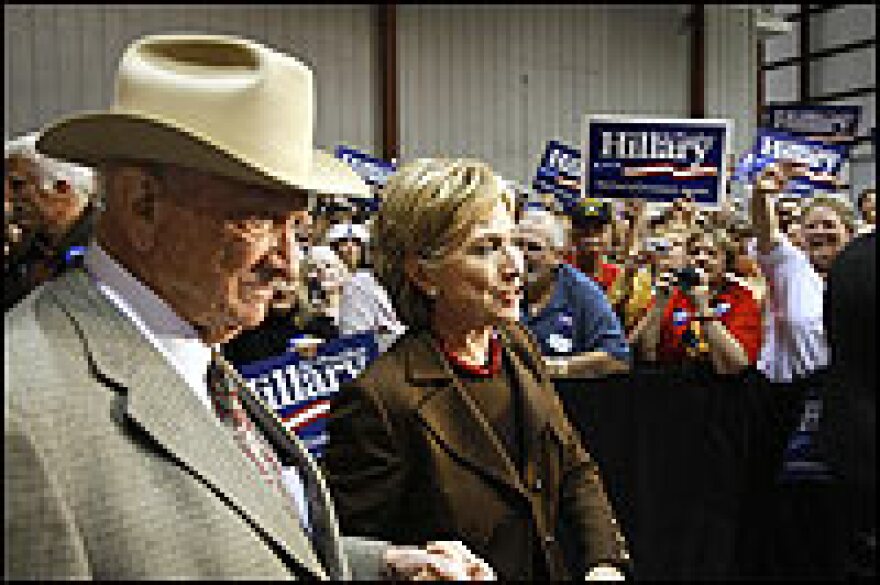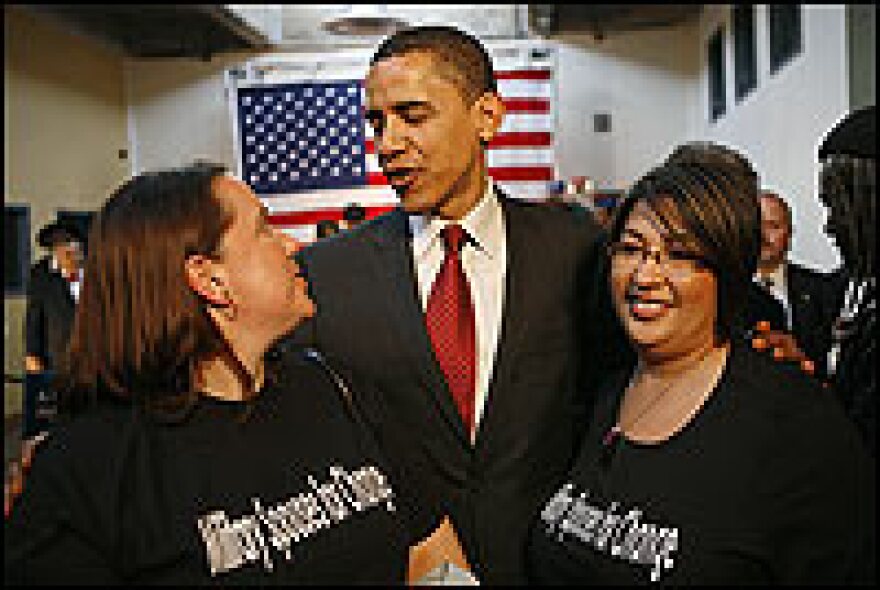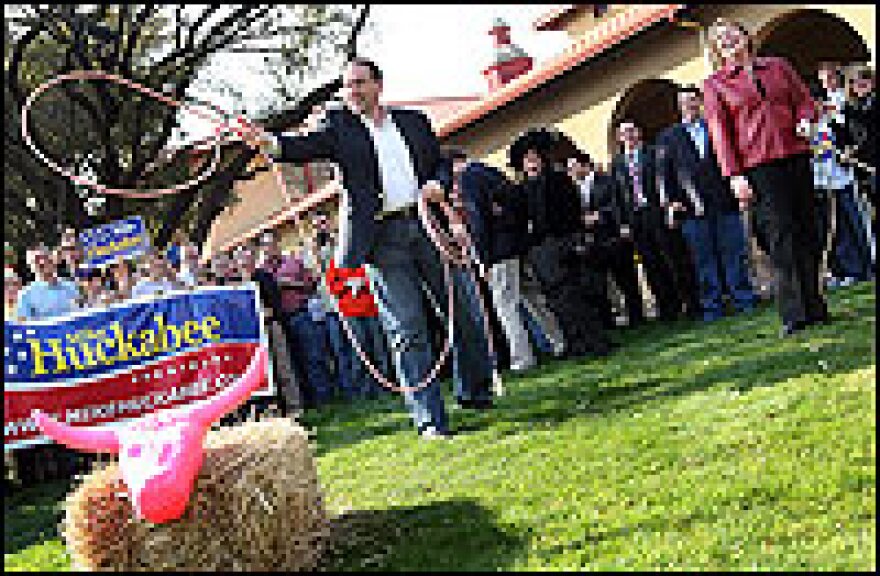



The Democratic presidential candidates spent the final day before the March 4 primaries in Texas, Ohio, Rhode Island and Vermont in a frenzy of last-minute campaigning and barb-trading.
With just hours to go before the polls open, New York Sen. Hillary Clinton and Illinois Sen. Barack Obama were busy wooing a dizzying array of voting blocs — from Hispanics to women to veterans to the working class.
Clinton started the day campaigning in Ohio before making her way to Texas midday. Obama focused his efforts on Texas, courting veterans in San Antonio and then wrapping up with a late-night rally in Houston. He told voters he is optimistic about winning the March 4 contests but has not discounted Clinton.
"Sen. Clinton is running a tenacious campaign," Obama said. "She is a hardworking candidate who brings to bear enormous resources. We're working as hard as we can to try to do well."
All the while, the two candidates attacked each other on foreign policy, the war, health care and international trade agreements.
Tuesday's contests are seen as make-or-break for Clinton, who has lost 11 straight contests to Obama. The latest polls show Obama with a small lead over Clinton in Texas, though she retains a slight edge in Ohio. Ohio has 141 delegates at stake Tuesday; Texas, 193. Many observers believe Clinton must win both states if she is to remain in the race.
"I'm just getting warmed up," Clinton told the Associated Press on Monday, looking beyond the March 4 contests.
Clinton will be under increased pressure to withdraw from the race if she fails to win both Texas and Ohio. Obama's task on Tuesday is two-fold: He hopes to pick up enough delegates to definitively portray himself as the party's inevitable nominee and at the same time force Clinton from the race.
But just one day before the March 4 contests, he also had to defend his relationship with Chicago businessman and political fundraiser Antoin "Tony" Rezko, who is facing federal corruption charges in a Chicago court. Obama was questioned about his purchase of a strip of land adjacent to his house from Rezko.
"I have been very open about what I called a boneheaded move," Obama said.
Obama also spent Monday fending off allegations that he had overstated his opposition to NAFTA to win votes in Ohio, where the North American Free Trade Agreement is highly unpopular. He told reporters that his campaign never gave Canada back-channel assurances that his criticism of NAFTA amounted to political posturing. Ohio has the seventh-highest unemployment rate in the country, after hemorrhaging its base of blue-collar manufacturing jobs.
Further south, in Texas, a state with a large number of military bases, Clinton has renewed her argument that she is the more experienced candidate and, therefore, better prepared for the Oval Office. She has been running an ad in the Lone Star State that features a red phone ringing in the middle of the night with news of a national disaster. The ad asks viewers which Democratic presidential candidate they would prefer to have on the other end of the line.
Obama has countered the experience argument by reminding voters that Clinton voted to authorize the use of force in Iraq — a vote that he calls an error in judgment on her part.
The key March 4 states of Ohio and Texas are home to several different voting groups, including Hispanics, blue-collar workers, African-Americans and women. As the candidates traverse the states, they have adjusted their message to target the listener.
For Hispanic voters, there have been Spanish-language radio advertisements. For the college-age voters, there are ads on popular radio stations, along with candidate pages on social networking sites such as Facebook. For blue-collar workers, rallies have centered on economic issues and NAFTA-bashing.
The Republican candidates also campaigned in Texas, although in a less contentious battle. If Arizona Sen. John McCain wins there, he will finally have enough delegates to clinch the Republican presidential nomination. He ended the day in Lubbock and Waco.
His chief rival, former Arkansas Gov. Mike Huckabee, who has 252 delegates compared with McCain's 912, told supporters, "It ain't over until Texas says it's over." He held campaign events in Dallas, Midland, San Antonio and Houston.
Rep. Ron Paul of Texas remains in the race, but first things first: He has to dispatch a Republican challenger for his House seat in Tuesday's primary.
From NPR reports and The Associated Press
Copyright 2023 NPR. To see more, visit https://www.npr.org. 9(MDM3NjYwMjA5MDE1MjA1MzQ1NDk1N2ZmZQ004))

